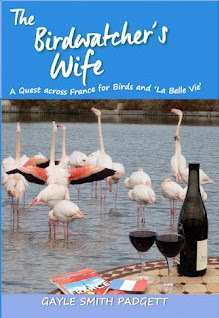The 2017 Festival d'Aix takes place July 3 to 22. Can't wait? The program called "Aix en Juin" offers free or low-priced musical and cultural festivities throughout the month of June...a prelude to the main event. The guest post below--by my favorite opera aficionado in Aix--gives you all the info about both.
Archevêché, where the opera season opens and closes
The Bolshoi Theatre Orchestra, photographed at home at the Bolshoi, by Damir Yusupov. They'll play Eugene Onegin in Aix in July.
Stravinski's "Le Rossignol" from 2010, with beautiful staging by Robert Lepage (they flooded the orchestra pit).
"Pelléas and Mélisande," staged by Katie Mitchell in 2016
A free Parade[s] concert on the Cours Mirabeau.
"Written on Skin" made its world première in Aix in 2012.
A Master Class Concert
"The Abduction from the Seraglio," staged in 2015.
"Iolanta," staged by Peter Sellars in 2015
Concert on the Cours Mirabeau in June 2015, as part of
the program called Parade[s].
Opera lover Anne-Marie Simons left her native Holland after college, headed to Paris
for a year of intensive French and then to Brussels to work for the European
Atomic Energy Community (Euratom) where she was offered an opportunity to work
in the United States. There she spent the next 32 years, working as a
translator, language
teacher, journalist, sports writer covering Formula One races, and director of
corporate communications. She retired in Europe and has been living in
Aix-en-Provence since 1998 with her Argentine husband Oscar Rodriguez-Rozic,
who left a career in international development banking to become an expert on
Provençal cooking. As Oscar took over the kitchen, Anne-Marie began to record her
experiences and impressions of France − its attractions, its quirks, its
quality of life – which resulted in her delightful 2011
book Taking Root in Provence. In her
blog Provence Today, she reports
on political and current events in and around France. Having attended the
Festival d'Aix for many years, Anne-Marie knows all the ins and outs. So I
asked her to give us the scoop on this year’s festival (July 3 to 22)…and this
is what she sent.
True opera lovers seem to have one thing in common: they won't let
money or distance keep them from seeing their favorite singers or conductors.
This may mean planning their summer vacations around some of the opera
festivals in Europe, such as Bayreuth, Verona, Salzburg, Glyndebourne or
Aix-en-Provence.
Wagnerians put up with a
waiting list of five to ten years for the chance to get a seat in Wagner's very
own Festspielhaus in Bayreuth, where they'll happily sit through five-hour
afternoon performances, in formal dress, and have beer and sausages during
intermission. Glyndebourne, an English country house in Sussex, is more relaxed
and allows for picnic dinners on the lawns. And then there is Aix, perhaps most
accessible of all, with three different venues in town. Unfortunately, the lovely Domaine
du Grand St. Jean in nearby Rognes, where some of the smaller operas have been
performed in a bucolic setting, closed last year for extensive renovations and
is not expected to reopen until 2019.
Founded in 1948 as an
all-Mozart event, the Festival d'Aix still presents one Mozart opera every year but
has long since widened its scope and today covers opera from its earliest
beginnings (Monteverdi) to the present. (For the history of the festival, click
here.)
It also has established an Académie
Européenne de Musique, where young musicians get a chance to work with great
teachers in Master Classes for Voice, String Instruments, Piano, Composition,
etc. and perform before a live audience in evening concerts. The participation
of these Academy students, winners of an international competition, adds an
element of youthful enthusiasm to this opera festival.
One of the most attractive
aspects of the Aix festival is the rich menu of daily musical offerings
throughout the city, with opera, concerts, Master Classes, conferences,
interviews, and, at the end of the day, performances by the Academy singers or
instrumentalists in the intimate setting of city squares and courtyards.
As
always, this year's festival program in Aix (July 3 to 22) will feature five operas,
including one commissioned work, performed in three different theaters:
Don Giovanni by Mozart
Carmen by Georges Bizet
The Rake's Progress by Igor Stravinsky
Erismena by Francesco Cavalli
Pinocchio (commissioned) by Philippe Boesmans
Also,
an orchestral version of Eugene Onegin
by Tchaikovsky.
The
“Preludes,” educational introductions to each opera, are held at the respective
venues, one hour before the opera begins.
In
addition, ‘’Aix en Juin,” a lead-in to the operas in July,
offers a program of free or low-priced musical and cultural festivities throughout
June, culminating in ‘’Parade[s],” a
major free concert on the Cours Mirabeau, this
year with the Orchestre de Paris and six soloists and a choir who will perform
extracts from Carmen.
Master
classes, as well as concerts and recitals by the Académie
students, will start on June 23 and run until July 20. The disciplines may vary
from year to year but always include voice, chamber music and contemporary
creations. The final details (teachers, venues for Academy performances, date
of live televised opera in a public park, etc.) will be announced later on this
month. All these events (more than 60 in total) are open to the public with a
€15 Pass (€5 for a single event).
Tête-à-tête”
with the artists of the Festival is held every day at 6pm in the presbytery courtyard
on the Place de l’Archevêché.
So
much for the programming. Now, let's take a peek behind the scenes.
Bernard
Foccroulle, present Director of the Aix Opera Festival, will be leaving us at
the end of the 2017 season, after ten years at the helm. A renowned organist,
he wants to return to performing, teaching and composing organ music
in his native Belgium. He will be succeeded by Pierre Audi, currently Director
of the Dutch National Opera in Amsterdam.
Foccroulle
is credited with bringing the Aix Opera Festival into the 21st century, and it
was under his leadership that in 2014 the Aix festival was named Best Opera
Festival in the World at the International Opera Awards in London. He has rejuvenated
the repertoire, favoring new creations, and brought opera to a wider public by
introducing pedagogic programs in local schools and inviting students to some
rehearsals.
His
choices of "modernity" have not always been felicitous, however. In
2015, for instance, Austrian director Martin Kusej chose to politicize Mozart's
lighthearted "Abduction from the Seraglio" by turning the
18th-century love-conquers-all story into an ISIS kidnapping of Konstanze, not
by a love-struck pasha Selim who holds her captive in his palace, but by a
bunch of black-clad, turbaned, machine-gun-toting jihadists who hold her in a
tent in the Sahara and end up killing her in a simulated beheading on stage. When
a shocked Foccroulle saw the rehearsal in Aix he told Kusej this was
unacceptable and pleaded for a rewrite, but Kusej refused and claimed artistic
license, granting no more than a final scene with a heap of bloody clothes on
stage rather than a simulated beheading. The production was panned by critics
(excepting the singers) and roundly booed by the audience.
Another
misfortune befell Foccroulle when in 2014 he was faced with a strike by theatre
temps (les intermittents du spectacle)
who threatened to close down the festival in protest against the government's
announced cutbacks. These temps work only when called upon but have year-round
salaries covered by unemployment insurance. As always in France, public opinion
was with the strikers and accommodations were found to keep the Festival open. As
British mezzo soprano Sarah Connelly wrote in Limelight magazine, it was disheartening to be greeted by angry
shouting and pot-banging by demonstrators who delayed the start of Haendel's Ariodante (in which she sings the title
role), forced her and some colleagues to stay in their dressing rooms, finally
allowed her back on stage only to interrupt the performance two more times… and
then to find her wallet stolen from her dressing room afterwards. She called
the episode a frightening experience but says she "will try to remember
the beautiful moments as well."
And
so will we, because not only have we enjoyed some of the best summer opera
anywhere here in Aix, but we feel confident that the new agreement reached
between the government and theatre unions will hold. So whatever your plans are
for the summer holidays, you can be reasonably sure that the cultural festivals
will not be disturbed!
Tickets to the 2017 festival
are now on sale online, by phone and at the box office (located at the Palais de l'Archevêché). Priced from €30 to €270 they sell briskly, especially the less expensive ones. The
website is now in English and very easy to navigate.
Until June 12 the box office will be open
Tuesday thru Friday; after June 12 it’s open daily. And
if all else fails, try your luck on the day of the performance when the box
office sells same-day tickets at half price (usually the more expensive
ones). Or go directly to the performance venue in hopes of finding people
selling their tickets.
The €15 Pass can be
purchased at any time, even just before the Master Classes or the Academy
concerts, which you can attend on a space-available basis (expect long lines).
Ever since the creation of the Académie Européenne in 1998, the Master Classes have
been extremely popular since they provide a unique opportunity for a wide
public to see established musicians teaching the finer points of their art to
music school grads who are just beginning their professional careers as
singers, instrumentalists and composers. It's the up close and personal
observation of a master at work as he/she fine-tunes the technique and
interpretation of a young artist.
In reflecting on the many attractions of world-class
opera on my doorstep, so to speak, I do not only remember my favorite music or
singer, but some of the great artists who have conducted master classes.
Imagine seeing star violinist Isaac Stern teaching a class, or Pierre Boulez
(composition and percussion), or meeting Pina Bausch and Tina Brown, masters of
modern dance, and Patrice Chéreau, film maker and stage
director -- all gone now. Their art will live on in those they taught and new
stars will rise, because, as Nietzsche said: "Without music, life would be
a mistake."
For all the info: festival-aix.com. For more in-depth info about the festival, the artists and performances, along with day-by-day schedule, the press kit (in French) is here.






























































.jpg)




















Thanks for this excellent overview Anne-Marie! we've lived in AIx for over five years now, but I've never seen such a good summary of the programmes - both for June and July. And thanks to Julie of course for hosting your post.
ReplyDeleteVriendelijke groeten,
Sophia (van Woensel) Mose
Dankjewel Sophia. This festival is indeed a great gift to us locals. Enjoy!
ReplyDeleteWhat fun to see Anne-Marie here in the Post! I can't imagine anyone who could offer a more insightful overview. Her lovely book, Taking Root in Provence. is one of my favourites!
ReplyDeleteThank you Patricia, a writer's best friend.
ReplyDelete